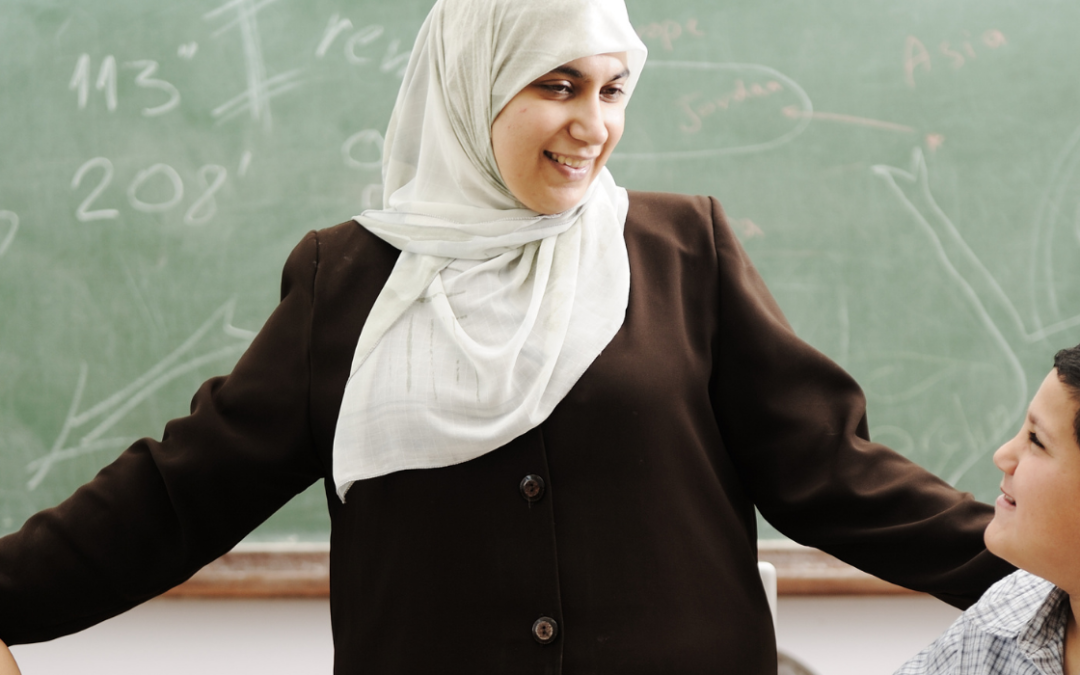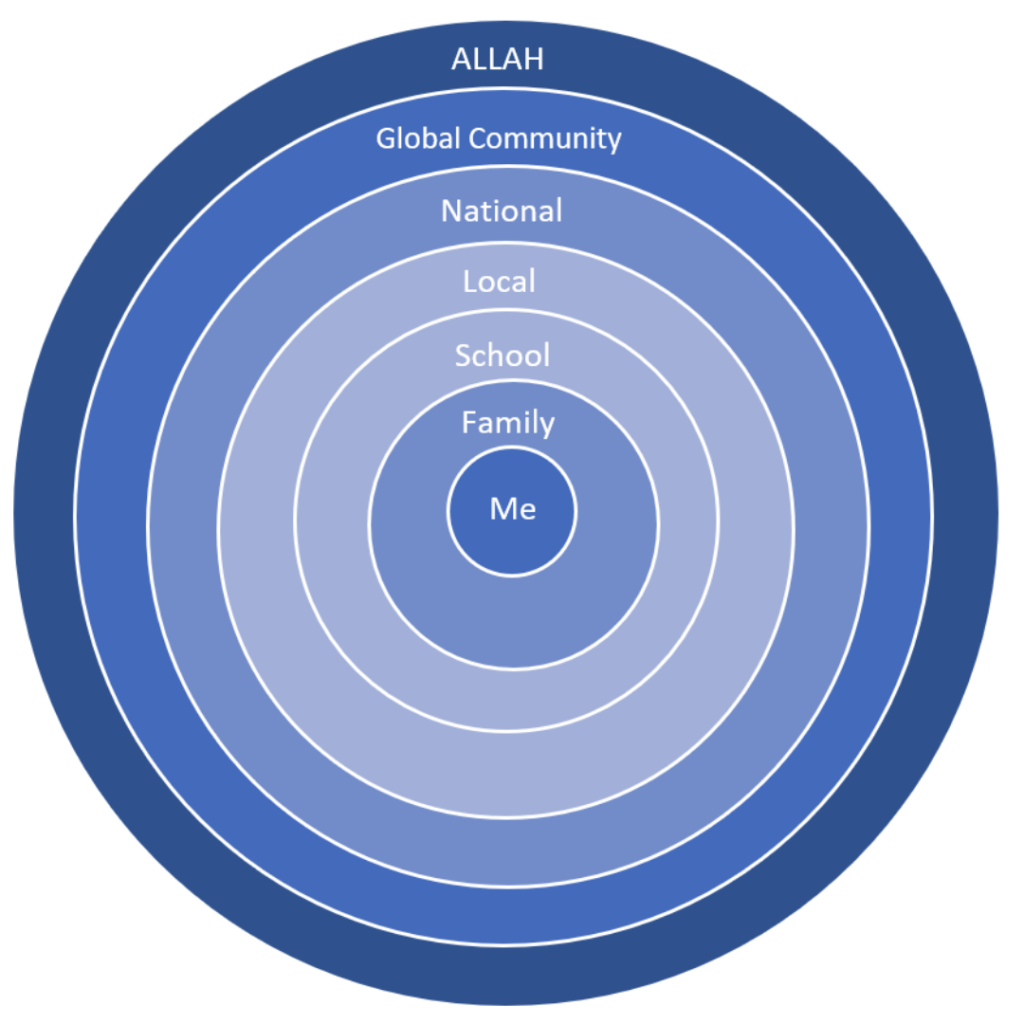The concept of Islamic education represents a broad field of theory and practice. At a foundational level, Islamic education can refer to passing on the knowledge of the Qur’an and sunnah. Building upon that conceptualization is that Islamic education embodies secular knowledge being taught primarily by Muslim adults to primarily Muslim children informed by the lens of Islamic discourse and in tandem to Qur’an, Arabic, and Islamic studies courses. Yet, even with this straightforward definition, there is no shortage of the delimiting factors, ranging from the cultural to the socio-economic contexts, that can inform a robust definition of Islamic education.
As a Muslim educator in the United States, I draw from a background informed by an up-bringing in private, religious based schools, having reverted to Islam as an adult. I have a broad interdisciplinary background with emphasis on identity formation and discourse analysis and have years of experience teaching and serving in administrative and leadership positions at both K-12 and higher education institutions. My background informs my adoption of a holistic approach to Islamic education: teaching and learning through the lenses of psychological, physical, social, emotional and spiritual development characterized by an emphasis on experience, reflection, and independent critical thought highlighting the limits and freedoms prescribed by the Qur’an and sunnah (statements and actions of the Prophet saws). Islamic education, based on the principle of nurturing and upbringing of children (tarbiyah), is not confined to the classroom, but begins at birth and is aligned with a model of human development that recognizes and respects the nature (fitrah) of children and young adults as the foundation of their identity.
Children and adults have a natural belief (fitrah) that connects them to Allah (swt). This connection, especially strong for children under the age of seven, guides their development in areas of social, emotional, psychological, and spiritual interactions. As the child grows, he or she is influenced by the teachings of parents and other primary caregivers and teachers. The child has little control over the beliefs he or she will adopt due to his or her innocence and limited capacity to respond or disagree to the beliefs and standards inculcated by adults. Adults themselves also struggle with the messages they receive (whether for or against the worship of Allah) and the innate nature that ties them to their Creator. Yet, it is this fitrah as it is nurtured during the process of tarbiyah in the context of an Islamic education system that allows for a healthy Muslim identity to emerge as a child matures.
Developing a visual model of an individual’s place in the world underscores the factors that influence the shaping of an identity. This place in the world can be illustrated as concentric circles with “me” (the individual) in the center, encircled by family, school, community, world, and Allah. All circles encompassing “me” are contained in the outer circle of the Creator—Allah. “Me” is at the most intimate level, where self-reflection and self-development can happen, and yet it is contained in the full context of all the other circles. Each individual is influenced by the contexts surrounding him or her. Every “me” is in the circle of Allah, and every other circle has its own unique identifying characteristics and contexts. An American Me has a different relationship with the global circle, for example, than a Bangladeshi Me; even so, both are contained within it. Similarly, each “me “will have a different relationship with Allah, due to how he or she has been taught about Allah, even though Allah is the encompassing circle for every single “me.” Thus, the influencing factors of the circles move outward and inward. And each “me” is shaped at different stages of development by the experiences informed by other individuals present during those stages.
Within the Islamic educational environment that begins with the family and then expands outward to school and community, a child is naturally predisposed to be drawn to that which is Good. They are naturally drawn to obedience of Allah and the character traits that are most desirable in the human: kindness, empathy, respect, responsibility, accountability, honesty. Even so, Islamic education at the school level holds the responsibility to nurture these traits in a loving, positive, Allah-centered environment. In such an environment, the upbringing, or tarbiyah, of the child or student is paramount and can be justifiably called a student-centered learning environment as the adults who are Allah-centered, by virtue of their trust (amaana) to help the students develop and learn as active participants, focus on the student through the lens of pleasing Allah. In other words, educators are centering on the child’s self-growth and discovery in a process of education through the lens of right intention, which is obedience and pleasure of Allah. Thus, being student-centered with the intention of obeying and pleasing Allah is ultimately Allah-centered. This orientation purifies the educational environment so that each child is loved, honored and even served for the sake of Allah. The adults in the system put forward their best for the sake of Allah and, thus, the sake of each child.
In the Allah-centered environment where each child is unconditionally respected and valued for their unique qualities, children have the freedom to flourish in their own strengths and continue to grow and develop in other areas. Each child has a specific genetic disposition that has been determined by Allah, and through self-discipline and hard work, a continual striving for self-improvement (jihad), every child can improve in their skills, knowledge, behavior, and character: Islamic education represents a growth mindset. Adults should serve as the role models for this growth mindset as the Islamic educator continually strives to improve her own skills, knowledge, social interactions, emotional responses, character and spiritual relationship with the Divine. This role modeling can be as simple as talking softly or demonstrating patience in a tense situation as that is what the expectation for the child is. It can also manifest itself in adults apologizing for their mistakes and making efforts to correct themselves in a way narrated and emphasized for the children. The same standards and guiding principles apply to all members of the Islamic educational environment.
Islamic education is a holistic process that flourishes when the individuals—students, parents, teachers, administrators, and other persons of influence in the children’s lives are connected to Allah. When every individual’s relationship with Allah is the guiding principle of teaching, learning, and discovery in the world, children become the center in the circle of Allah. The child “me” develops into a healthy adult “me” who will be a positive role model, exemplary citizen or leader, and ultimately, an adult who lives in peace (salaam) and success (falaah) following the Islamic principles of the Qur’an and sunnah.
Copyright © 2021 American Islamic Montessori Association. All Rights Reserved.



